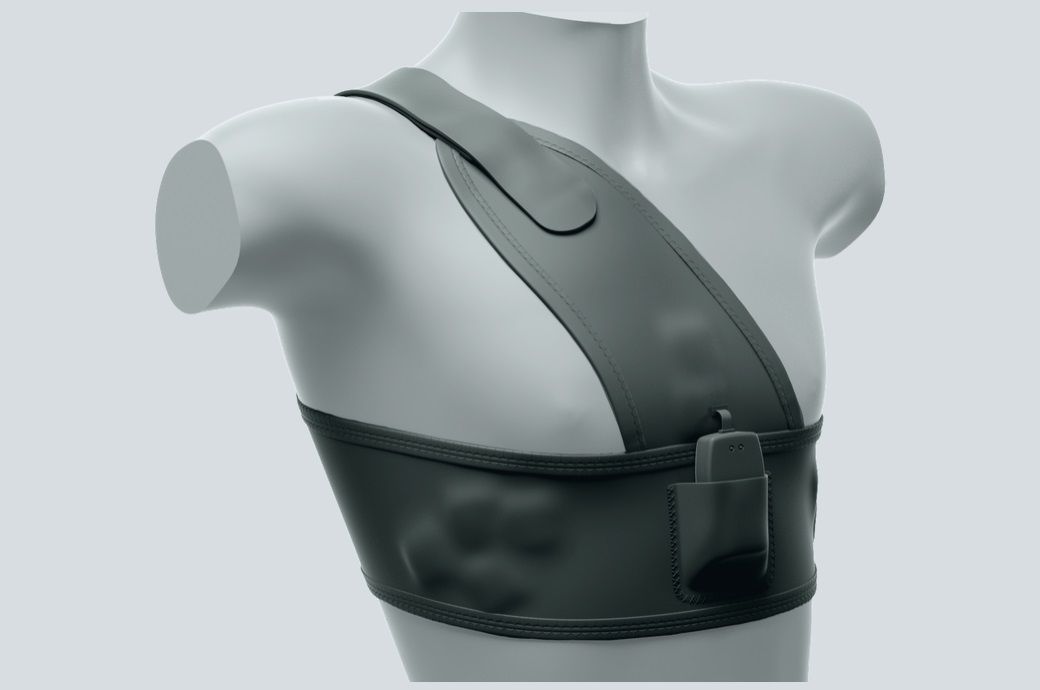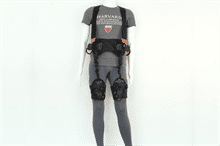
“This FDA clearance represents an exciting and differentiating moment for Nanowear. Accelerated by the pandemic, the market has been eagerly searching for reliable, clinical-grade wearable, and data service solutions that find product market fit with the following three attributes: at-home, utilising AI, and a proven team that executes,” said Venk Varadan, CEO and co-founder of Nanowear, emphasising the company’s distinction as the world’s only nanotechnology-based embedded sensor platform fueling irreproducible AI algorithms. “This SaMD is just the first example of what our nanotechnology and AI is capable of, in understanding the individualised risk signatures and cardiopulmonary care pathways of each patient, materially enabling precision medicine.”
With its fourth FDA 510(k) clearance, alongside 13 awarded and 12 pending patents covering its nanotechnology, scaled nanosensor manufacturing, multi-parametric wearable, software platform, ingestion pipeline, and AI algorithms in a closed-loop ecosystem, Nanowear’s SimpleSense is uniquely positioned in the market: the platform is indicated for use at-home, in healthcare facilities, and clinical research. The novel 4-decision tree algorithmic model, SimpleSense-BP, was tested in three study arms with both training and validation performed in independent geographies and demographic populations mirroring the most recent US census and generalisability to the entire hypertensive population. SimpleSense-BP is validated to track changes of > +/- 15mmHg systolic and +/- 10mmHg diastolic blood pressures over a continuous recording period across all classes of hypertension, via its wearable undergarment and AI platform, the company said in a press release.
NAMSA, the leading cardiovascular MedTech clinical research organisation worldwide, sees Nanowear’s most recent clearance and indication for use as differentiating in customising clinical research, a $50bn+ market with significant cost increases and requisite emphasis on real-world data reliability since the pandemic. “We often talk about whitecoat syndrome limiting our ability to understand the effect of therapeutics in blood pressure or other cardiopulmonary assessments. Whitecoat syndrome is just another word for ‘real-world’ living. Just as a patient’s blood pressure may be high in a 30 second reading due to whitecoat syndrome, the same patient may reduce their blood pressure by breathing calmly for five minutes before the 30 second reading. So, what are we actually learning about that individual patient or the therapeutic applied?” said NAMSA’s chief medical officer Ken Ouriel.
“To date, existing healthcare wearables and software platforms are both restricted in scope and time; or are unreliable and unvalidated for what they can diagnose during ‘real-world’ conditions. Nanowear’s continuous device, software platform, and AI algorithms, can transform the way clinical research platforms operate. Efficiency, access, diversity, and standardization across geographies can be enhanced while significantly lowering trial costs. Importantly, sponsors would be able to receive clinically reliable and trending data driven insights; data from the real world; their patients’ homes, their workplace, and a myriad of other settings that comprise everyday life,” Ouriel concluded.
Nanowear, winner of the 2023 Innovation Pitch Challenge by The American College of Cardiology (ACC), organised in partnership with the National Heart, Lung, and Blood Institute (NHLBI), was 1 of 5 companies selected for the 2023 HeartX cohort, powered by Medaxiom (an ACC company) and Healthtech Arkansas. Joe Sasson, PhD, MedAxiom’s chief commercial officer and executive vice president of Ventures, recognises the transformative nature of AI-enabled continuous blood pressure and home-based diagnostics for over 100 million Americans with hypertension.
“SimpleSense-BP’s continuous AI algorithm uses software quality management to mitigate against human error and other complexities of hypertension management, and it incorporates known confounders such as age, height, weight, ethnicity, and breathing rate as algorithmic inputs,” noted Sasson. “With more than 100 real-world examples in validation, this AI and home-based digital health platform offers collaborative intelligence to cardiologists, clinical researchers, and the empowered consumer, ultimately improving care pathways for this critical disease state. Additionally, the technology allows cardiovascular programmes to achieve an increased frequency of data collection while using fewer staff and providing an improved patient experience, which are meaningful benefits for all cardiovascular organisations today.”
Fibre2Fashion News Desk (RR)

